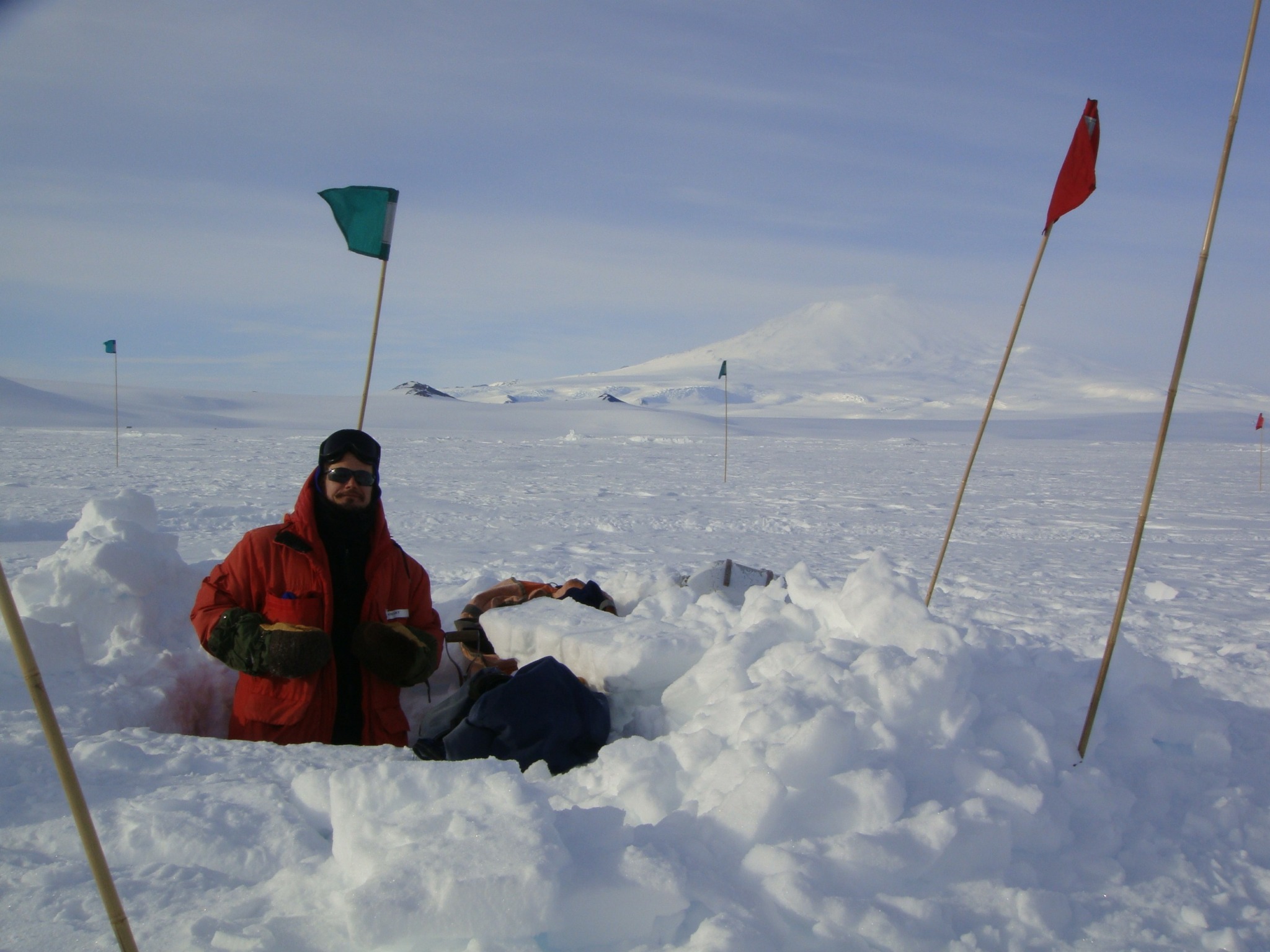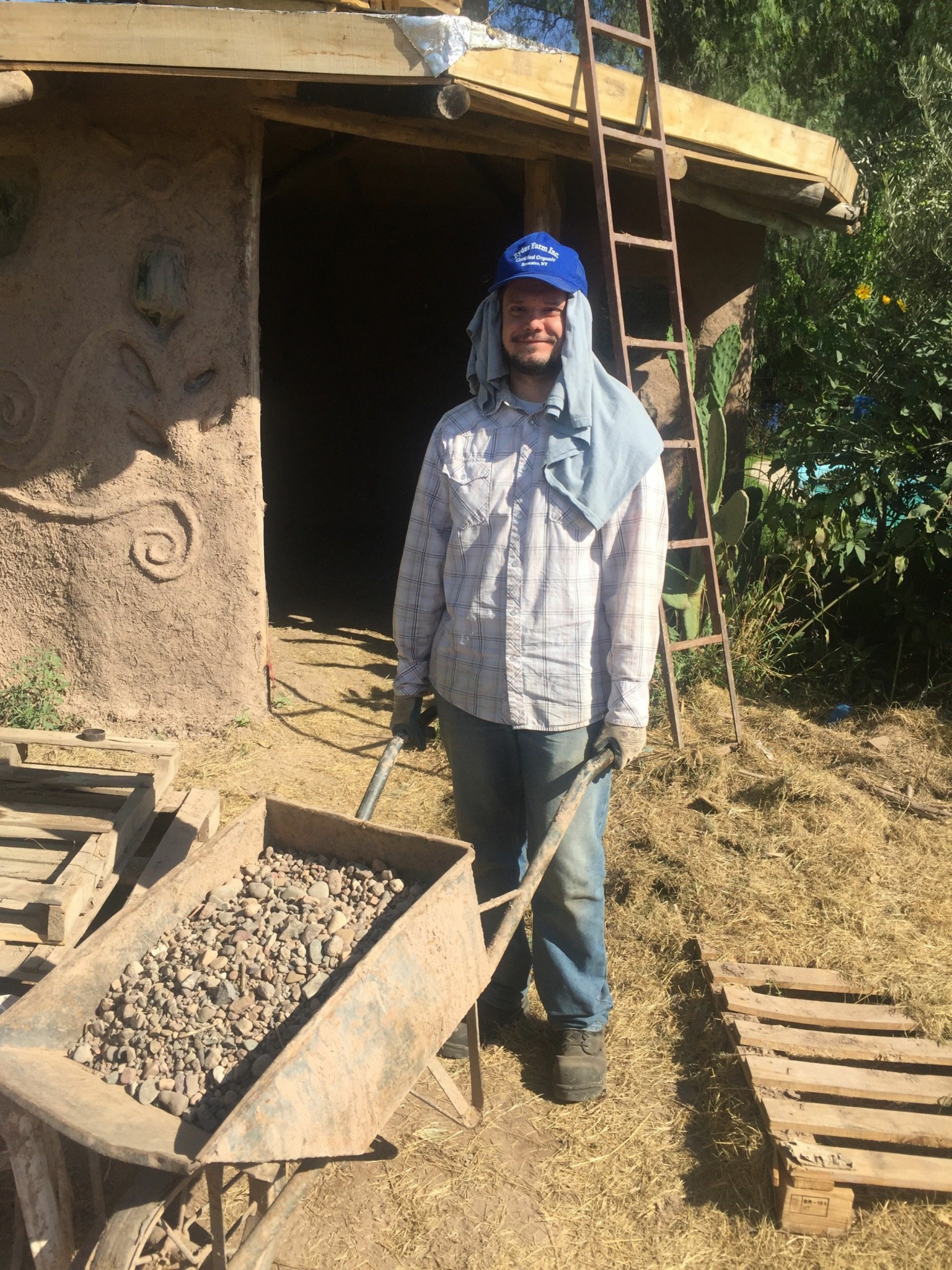We were lucky to catch up with Mat Smart recently and have shared our conversation below.
Alright, Mat thanks for taking the time to share your stories and insights with us today. What’s been the most meaningful project you’ve worked on?
Many years ago, I decided to travel to all seven continents and write a play set on each one. It still feels wild to say that I’ve done it.
I believe a playwright’s job is to take an audience on a journey – and I believe one of the best ways to do that is to go on a journey yourself first.
Usually, people’s first question is: “You’ve been to Antarctica?” I was lucky enough to spend three months living and working at McMurdo Station in Antarctica. It’s pretty hard to get a job working in Antarctica, so people do all kinds of things just to get down there. For me, it was my first (and last) foray into being a janitor. In the Antarctic summer, McMurdo has about 1,000 people living there. Germs can travel fast in the petri dish of “MacTown,” so it’s essential that bathrooms and work areas are always kept clean.
The play I wrote about the experience is called <i>The Royal Society of Antarctica</i> and it won the Jeff Award for Best New Play in Chicago back in 2015. Thematically, it explores how “the Ice” brings out the best and the worst in people. There’s cutting edge science happening right alongside people acting like it’s perpetually spring break. One of McMurdo’s mottos is: “What happens on the Ice stays on the Ice.” It’s a beautiful, complicated, and extreme setting for a play and it made all the difference to have personal experiences there.
To quickly mention some of my other adventures. . . I volunteered on an organic farm outside of Mendoza, Argentina. I visited my African Literature professor from college in Cameroon. I studied traditional theatre and contemporary literature in Shizuoka, Japan. My partner is half Australian and we’ve visited her family and friends in Darwin, Brisbane, Sydney, Melbourne, and Adelaide.
I’m grateful that this crazy goal allowed me to see the world and write about it. It’s been a joy to take my adventures and bring them to the stage. The greatest compliment I ever received came after a performance of <i>The Royal Society of Antarctica</i>. One of my fellow janitors said watching the play was like “going back to the Ice.”

Mat, before we move on to more of these sorts of questions, can you take some time to bring our readers up to speed on you and what you do?
I’ve been writing plays since I was 18 years old. I’ve been writing full-time for the last decade. I primarily write plays, but also do screenwriting and television writing. I live in Brooklyn. My desk is an old 1932 post office table from Philadelphia. The desk has burns, scratches, nicks, and initials carved into it. I love how much history it has.
In addition to writing about my travels, I have a deep love for bringing historical moments and figures to life. My most widely produced play is called <i>The Agitators</i>. It’s about the real life 45-year friendship between Frederick Douglass and Susan B. Anthony. They had a fascinating and explosive relationship that most people don’t know about. I spent over a year researching and then another year writing it. The play asks: Can we ever see with someone else’s eyes? Can we fight for others as much as we fight for ourselves?
I believe we can learn so much from history, but we need to make it active. To quote Frederick Douglass: “We have to do with the past only as we can make it useful to the present and to the future.”

What’s a lesson you had to unlearn and what’s the backstory?
When I first moved to New York City, I wanted to see and experience everything. I went to see plays, opera, dance, and music six or seven nights a week. While it was incredibly invigorating, it was also exhausting.
I’ve learned that writing takes a lot of quiet and stillness. It takes unplugging. Slowing down. I miss a lot of things these days, but somehow, I experience more.


Can you share a story from your journey that illustrates your resilience?
Early in my career, on a phone call, I had an artistic director tell me my writing wasn’t personal enough. I thought it was a strange thing for a person I’d never met to say. However, the artistic director had read a couple of my plays and was in a position of power, so I took it very seriously. Even though I’ve always put my heart and guts into my writing, it made me feel like I was somehow lacking.
Fast-forward to last year. I was on a call with the same artistic director – who I hadn’t talked to since – and this person said: “I can tell this play is deeply personal to you, but I’m concerned that will hold you back from doing the revisions you need to do on it.” It took everything in me not to laugh. This person had no recollection of what they had said to me many years ago. This artistic director simply went around saying things like this to playwrights they didn’t know.
I think it’s important for artists to listen to feedback and criticism. It’s also important not to take anything too personally.

Contact Info:
- Website: www.concordtheatricals.com/a/103144/mat-smart
- Instagram: @mat_with1t_smart
- Other: newplayexchange.org/users/65077/mat-smart


